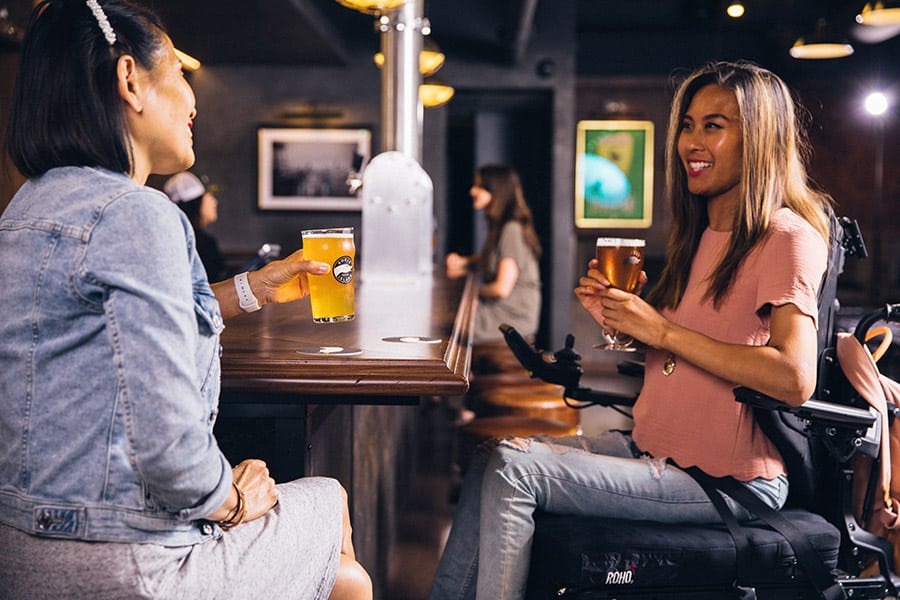Venues urged to make facilities accessible for disabled people as lockdown measures ease

User experience and digital agency Sigma is calling for greater consideration in the design of in-store distancing and safety measures, as venues reopening their facilities could be excluding disabled people.
In an attempt to make up for lost time, venues that have reopened could be excluding as many as one in five customers that have disabilities as their needs are overlooked, Sigma adds.
Sigma is calling for bars, restaurants, retailers and leisure venues to make their facilities accessible for disabled customers when rushing to reopen, as lockdown measures across the UK begin to ease.
Hilary Stephenson, Managing Director of Sigma, said: “Retailers have done brilliant work in recent years to welcome those of all abilities in-store, however these efforts face being voided as temporary distancing measures are put in place. For example, colour coded floor markers and new guidelines stuck in windows cannot be seen by those with sight impairments, and guide dogs do not understand distancing measures.
“Following government advice, the responsibility is now on all businesses, whatever their size or sector, to ensure their services are accessible – as nearly one in five people in the UK has a disability or impairment. Things have been tough for everyone during the past few months, however we shouldn’t abandon accessibility for all in the race to reopen.
“Better accessibility should not be an option, or consideration in hindsight, it should be a central customer experience consideration from the start.”
Research by disability charity Purple revealed that three-quarters of disabled people have had to leave a physical store because they were unable to finish a purchase due to their disability.
Outlined by Sigma, some of the most common examples of hard-to-navigate social distancing measures in stores include:
- Traffic light-based systems
- Floor markers
- Bathroom queuing systems
- Cash only or contactless only payment
- Hard-to-navigate websites and booking pages
Hilary continued: “Disabled shoppers may need manual support adhering to distancing measures, as government guidelines are geared towards sighted and able-bodied people. Accessibility also extends beyond the physical in-store experience, with lots of bars and restaurants now requiring customers to booking in advance – leisure outlets must ensure their websites are easy to navigate too.
“Ultimately those that make greater considerations for disabled people will benefit commercially as more customers are able to purchase their products and services. The ‘purple pound’ is estimated to be worth £249 billion, per year, however less than one in ten business have plans in place to cater for those with disabilities.”
Accessibility measures like the Welcome app, from Neatebox, lets users indicate the areas of a venue that they need specific assistance with and the app delivers a detailed request and overview of the user’s condition, as well as tips for improving their interaction with the service to the business in question.

